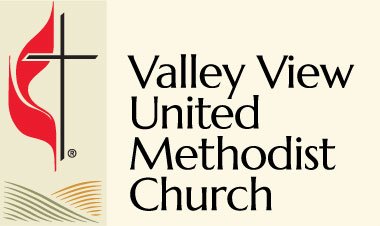On the Big Screen (Part 1)
This is one of those questions I find myself asking often, but here I go again… Where do you look for God? There have always been the ordinary means of grace- the things everyone knows to do. Reading or studying scripture, prayer and meditation, and spending time in the majesty and glory of creation.
But… if we understand that we are made in God’s image and are to create, what do you do with some of the things being made today? The violence, the language, the graphic nature of it all…
I realized I had quite a bit to say about this, so I’ve split this article into two. Today’s article focuses on writings, media, films, etc. that are written with the intention of excluding God. Part two will focus on bodies of work that are written with the intention of including God.
I theorize that the more authors try to push God out of their creation, the more likely it seems to be that there is a lesson in it for the believer and non-believer about who God is.
What do I mean by this? Remembering that stereotypes, generalities, and absolutes leave little room for any viewpoint but your own, most of this is my own conjecture and experience and I would love to hear varying views, even ones you might consider opposing… let’s talk about what happens when atheists write.
I want to talk about Douglas Adams. An atheist. A man who did not believe in God. Who intentionally made fun of God. Who included the following in his novel The Restaurant at the End of the Universe:
In the beginning the Universe was created.
This has made a lot of people very angry and been widely regarded as a bad move.
In fact, his whole argument across the five books in his trilogy could be summed up as life is pointless, we’re meaningless specks in the vastness of the universe which shouldn’t exist anyway, and that bureaucracy is, well, bad.
Biblically and theologically speaking, God is still present there. I find it ironic that by trying to force out God Adams perhaps made a greater point about who God is than if God had been included in the first place.
So, let’s start by looking at his big arguments. Adams seems to argue that life is pointless. There’s no reason to get excited about anything. And yet, his primary human character, the protagonist, the would-be hero Arthur Dent, gets excited about things. He gets angry at the council for wanting to knock down his house so they can build a bypass for the highway. He gets angry at his friend Ford Prefect when he changes the entry on earth from harmless to mostly harmless because he believes in the beauty and wonder of the world. He gets upset when he gets his heart broken. He does, however, choose not to react to the guy who goes around the universe insulting people. Even when it happens for a second time. Arthur is human. Flawed. Seeking purpose and feeling a little lost along the way. Dent’s journey easily reflects many a believers journey. And we get to see that Dent isn’t satisfied with the answers he finds along the way. God’s love gives us purpose. We might still get lost sometimes, but we aren’t wandering aimlessly and listlessly.
Just this last Sunday we too pondered the question of what are mortals that God is mindful of them (Psalm 8) so that question isn’t even blasphemous. It’s a very legitimate and fair question. We are mere mortals. We are tiny, unimportant little things especially in the grand scope of all time and the entire cosmos… but God loves us all the same. God cares for us. Starting from the very beginning of creation when God cared for Adam and Eve even after they were great disappointments, God has cared for humanity. Adams might have left his characters feeling small and insignificant, but it’s also easy to look at his body of works and see how one person can make a difference. It only takes one person being in the right place at the right time (the sort of cosmic alignment I attribute to God, not probability) to change the world.
And as for bureaucracy… render unto Caesar that which is Caesar’s says a lot about how Christians are meant to view that sort of thing. When the rules get in the way of loving people, offering kindness and righteousness, and otherwise try to be bigger than God… that’s bad. I know that for many churches the thought of opening their doors to shelter people is a wonderful idea… until cities pass ordinances that say any church that operates as a shelter is no longer exempt from property taxes or able to act as a non-profit within city limits. As much as I enjoy the small satisfaction of filling in a form or bubbling a scantron sheet, there is a big difference between a form and a system formed to ostracize, belittle, or actively harm humans. This same bureaucracy gets in the way of rescuing people in Douglas Adams works, so this is one point where I agree wholeheartedly with him.
Thus, here is a body of work that is intended to force out and make fun of God… and instead I find that it captures well some of the doubts and questions that believers have when deepening their faith, looks at the absurdity of human society and its glaring flaws, and generally carries an attitude of we can do better. It’s also rather funny at times. And it is but one example of an author attempting to force out God and instead creating a space for God.
